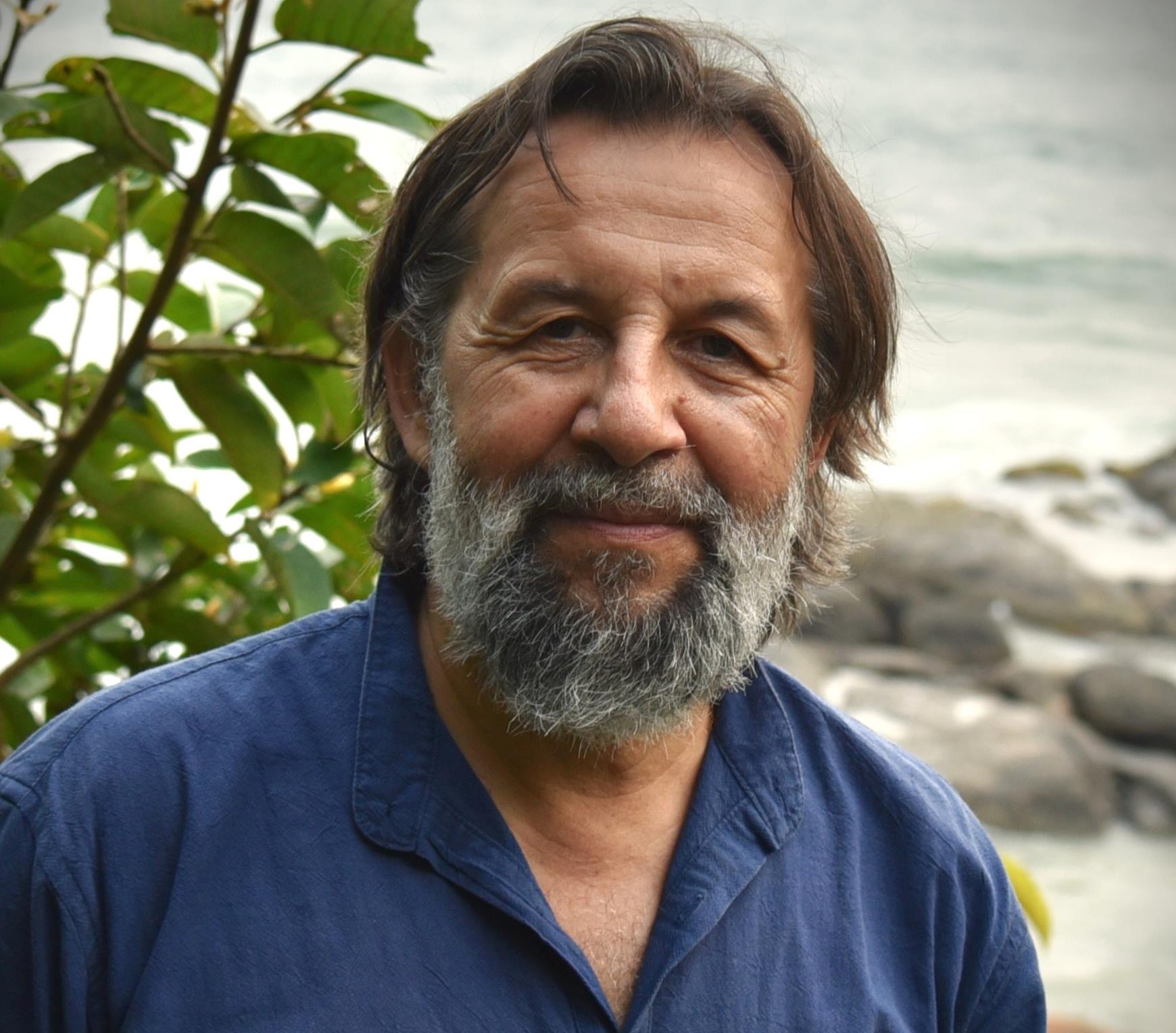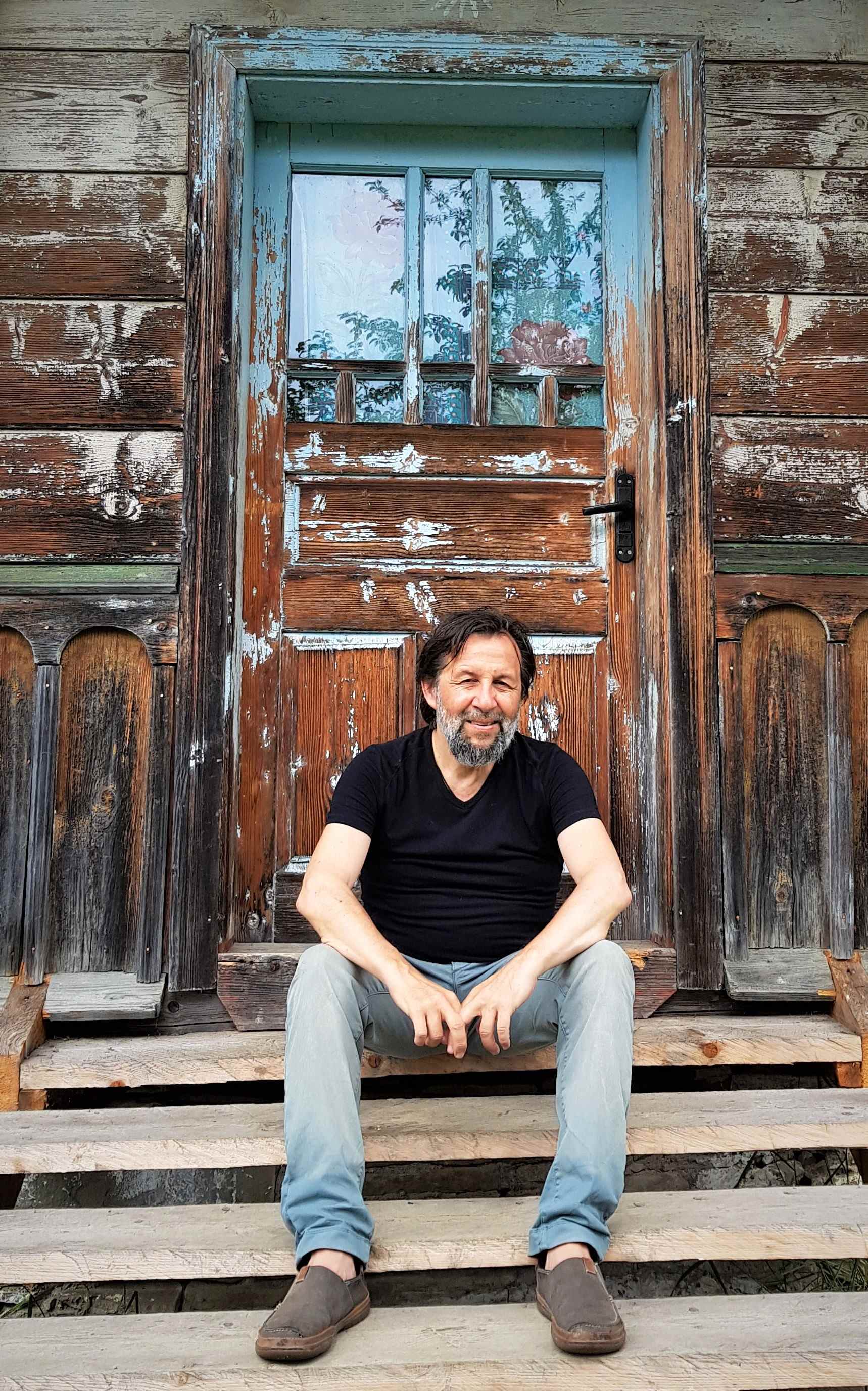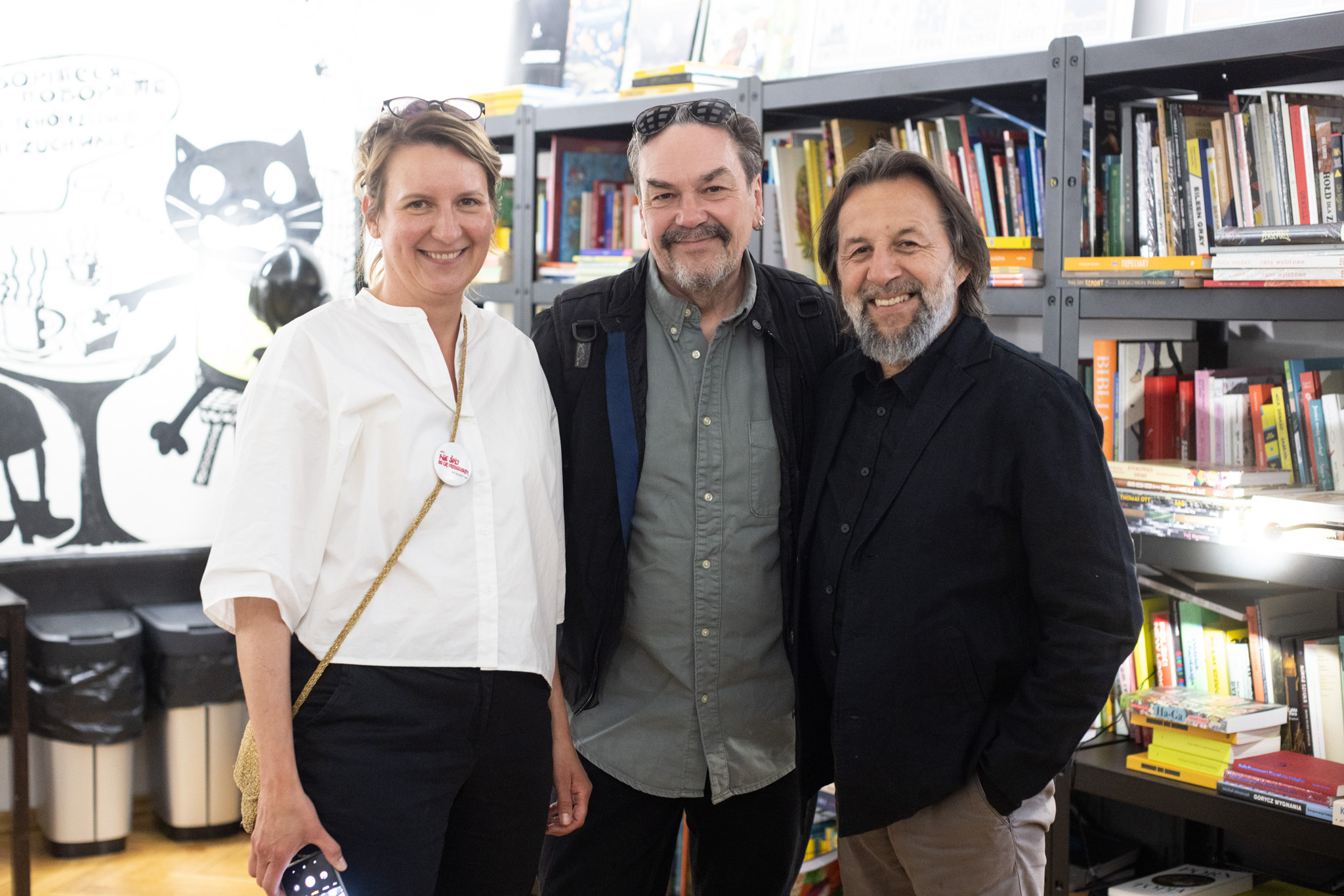Support Sestry
Even a small contribution to real journalism helps strengthen democracy. Join us, and together we will tell the world the inspiring stories of people fighting for freedom!
«Колеги дивилися на мене, як на інопланетянку»
Киянка Ярослава Шумик виїхала з України разом з двома дітьми на початку лютого 2022 року. Її синові на той момент було три, доньці ще не виповнилося двох років. Ярослава вирішила їхати до Португалії, бо там їй запропонували роботу:
— Маю великий досвід роботи продюсером на центральних українських телеканалах. Коли почалася війна, підняла всі свої контакти — і знайомий португальський журналіст відповів, що Федерація футболу Португалії готова надати мені роботу на їхньому телеканалі та житло в Лісабоні, — розповідає Ярослава Шумик. — Їм сподобалося моє резюме, хоч там не було одного важливого нюансу — знання португальської. Я наївно думала, що на такій роботі вільної англійської мені вистачить, але першого ж дня зрозуміла, що це не так: у Португалії треба говорити португальською.
Мову вивчала в процесі роботи, і це був той ще квест. Допомагало знання спеціальності — як влаштований процес на телебаченні зсередини. Використовувала все: гугл-перекладач, мовні додатки, уточнювала нюанси у колег (хоча не всі вони могли зрозуміти англійську).
Я навчалася на мільйоні власних помилок
Розмовляла короткими фразами, намагалася писати, а не говорити. Найскладніше було робити дзвінки гостям під час прямого ефіру. Було важко ще й тому, що багато колег дивилися на мене, як на інопланетянку, яка нічого не знає і не вміє. Щодня мені доводилося (щиро кажучи, доводиться й досі) доводити, що я — професіонал, хай і з неідеальною португальською.
Українцям були доступні безкоштовні мовні курси, але з моїм восьмигодинним робочим днем відвідувати їх неможливо. Стимулом для вивчення мови, крім роботи, стали ще й мої діти, які швидко адаптувалися в садочку й почали розмовляти вдома португальською. Мені ж треба розуміти, про що вони говорять.

За дитячий садок Ярослава не платила, бо вони з дітьми вважаються малозабезпеченою родиною.
— На дітей є невеликі виплати від держави, — продовжує Ярослава. — Спочатку я отримувала близько 300 євро на місяць на двох, а тепер, коли діти стали старшими, — 70 євро на дитину. Це зовсім небагато.
Португалія — не та країна, де люди можуть «сидіти» на соціальних виплатах
Щоправда, у деяких випадках допомога може бути не від держави, а, наприклад, від футбольного клубу, яких у Португалії сотні. На початку війни футбольні клуби брали сім'ї з дітьми, які грають у футбол, під опіку — забезпечували житлом і видавали певну суму на харчування.
У порівнянні з тією ж Німеччиною, Португалія небагата країна, тут немає високих соціальних виплат навіть для місцевих. Садки приймають дітей з чотирьох місяців, бо оплачувана декретна відпустка — лише чотири місяці. За доплату можна залишати дітей у садочку після трьох годин дня й під час канікул.
«Заощадження — атрибут культури португальців»
З поширеною думкою про те, що португальці в роботі трохи ліниві, Ярослава не згодна:
— Я не сказала б, що вони мало працюють. Але підхід справді інший. Більшість моїх колег тримається за роботу просто тому, що це невід'ємна частина «правильного» життя — зі стабільною зарплатою і пенсією у майбутньому.
Якщо робочий день вісім годин, всі сидітимуть вісім годин, навіть якщо робота вже виконана — тому що так треба
Англійська мова в моїй сфері (звісно ж, за наявності знань португальської) відкриває додаткові можливості (наприклад, робота на рівні УЄФА і, відповідно, хороші заробітки), але далеко не всі хочуть її вивчати.
Більшість надає перевагу своєму звичному робочому місцю, нехай і з маленькою зарплатою. В Україні ми звикли вважати, що знання іноземних мов — це плюс, ставлення до носіїв тієї ж англійської у нас дуже шанобливе. У Португалії все навпаки.
Іноземець апріорі гірший за місцевого, незалежно від того, з якої він країни і який він професіонал. Місцевий без освіти кращий за освіченого іноземця
Прямо тобі цього ніхто не скаже, але в колективі це добре відчувається.
Ще у португальців свій підхід до грошей та заощаджень. Мені знадобився час, щоб зрозуміти, що це не скупість, а менталітет.
Тут люди в офісі можуть довго сперечатися, хто має доплатити 20 центів за каву
Якщо тобі позичили пару центів, яких забракло для кавового апарату, а ти наступного дня забув їх повернути, тебе не зрозуміють.
А якщо у свій день народження приніс колегам торт вартістю понад 10 євро, це теж викликає подив — португальці не звикли до такого «марнотратства». Poupança (у перекладі з португальського — «заощадження») — невід'ємна частина культури.
Якось моя колега змушена була заплатити 70 центів за платну автомагістраль, і це була подія дня — вона всім про це розповідала, і люди щиро співчували.

Що мені тут подобається, то це підхід до дітей. Португальці люблять дітей. Ставлення до їхнього виховання напрочуд демократичне, у садку ніхто не підвищить на дитину голос.
День починається з того, що діти біжать до вихователя обійматися й цілуватися
Вихователька може поцілувати дитину в щоку — це норма. Португальці дуже тактильні, обійми й поцілунки навіть з малознайомими людьми — теж частина культури, до якої треба звикнути.
По суботах мої діти ходять до української школи, бо я працюю, мені нема з ким їх залишити. Українських шкіл, де викладають українські педагоги, тут кілька, вони були започатковані ще до війни тими, хто давно мігрував.
Школа, в яку ми ходимо зараз, мені подобається, а от у першій українській школі в Португалії наш досвід був, на жаль, негативним — моїх дітей шокував радянський підхід вчительки, яка критикувала малюнки доньки і те, що вона пише лівою рукою. Серед португальських педагогів такі речі неприпустимі.
Португальці живуть кланами
Кажуть, що в Португалії чимало українців, але я чомусь їх не бачу — можливо, через свій графік. Знаю, що багато хто працює в клінінгу або в магазинах. Є люди, яким, як і мені, вдалося працевлаштуватися завдяки роботі в Україні — великі бренди, як, наприклад, H&M, допомагали співробітникам з українських представництв знайти роботу в Португалії. Варіанти є, але головною проблемою для більшості українців був і є мовний бар'єр.
Це підтверджує також киянка Анна, яка приїхала до Португалії навесні 2022 року:
— Наприклад, мені — викладачці англійської з великим стажем, для роботи в університеті необхідна португальська на рівні не нижче В2. Без її знання можна обійтися хіба що у сфері IT — у міжнародних компаніях комунікація відбувається англійською. Щодо мови в побуті, то в Лісабоні й Порто англійську розуміють, а от у менших містечках — не факт.

Анна живе за 30 кілометрів від Порто — другого за розміром міста після Лісабона, на півночі країни. Житло після приїзду шукала сама, і це було непросто — в українцях без робочого контракту та кредитної історії власники житла рідко бачать надійних кандидатів для довгострокової оренди.
— Кажуть, місцеві навчені сумним досвідом з вихідцями з пострадянських країн у дев'яностих, коли люди орендували квартири й з'їжджали, не розплатившись. Тому, мовляв, зараз португальці перестраховуються
— Стандартні вимоги: оплата за перший та останній місяці, підтвердження регулярного доходу (країна, з якої надходить дохід, значення не має) та контакт португальця, який міг би виступити гарантом, — продовжує Анна. — Якщо такого португальця немає, іноді можна внести депозит — оплату за 3-6 місяців вперед. Ціни на оренду за останні три роки зросли.
Якщо в 2022 році однокімнатну квартиру з окремою спальнею в Порто можна було зняти за 800 євро, то зараз вже — близько 1000 євро
Якщо ви орендуєте довгостроково, ціна в літній період не змінюється. Але багато хто здає квартири з позначкою «з вересня по квітень», і влітку виставляють житло через Booking або Airbnb, щоб додатково заробити.
Високі ціни на житло на тлі невисоких зарплат (мінімальна зарплата в Португалії — близько 850 євро на місяць) призвели до того, що португальці живуть кланами — часто по дві-три покоління в одному будинку. Люди не можуть собі дозволити винаймати окреме житло, і молоді пари живуть з батьками, бабусями й дідусями.
Хто може потягнути оренду в Португалії, то це британські, німецькі та американські пенсіонери. Їх тут багато, і грошей у них теж немало. Вони «купують» так звані золоті візи, інвестуючи в португальську економіку. Живуть тут, а пенсії отримують у своїх країнах — і можуть ні в чому собі не відмовляти.
Ще тут непогано почуваються люди, які працюють онлайн на ринки інших країн — тих самих США або Канади. У Португалії звикли до людей різних рас, національностей, орієнтацій — іммігрантів тут багато з давніх-давен. Багато хто приїжджає з колишніх португальських колоній: Анголи, Бразилії, Марокко. Також чимало людей з Індії.
Дехто використовує Португалію як пункт пропуску до країн ЄС, адже тут відносно лояльне імміграційне законодавство, постійне резидентство можна отримати як через робочий контракт, так і у випадку самозайнятості. Легалізувавшись тут, деякі іммігранти їдуть далі — до Швейцарії чи Німеччини.
На постійне резидентство вже подаються й деякі українці. Є нюанси, але головна вимога — людина має працювати в Португалії

Плюси й мінуси життя біля океану
За словами Анни, темп життя в Португалії зовсім не схожий на український. Головна відмінність у тому, що португальці нікуди не поспішають:
— Для португальця такі міста як Нью-Йорк, Берлін чи Київ — страшний сон. Навіть спокійний і розмірений Порто багатьом здається надто галасливим, тому люди переїжджають до більш віддалених міст. Коли я тільки-но приїхала до Португалії, у мене було відчуття, що тут все відбувається у сповільненій зйомці.
Наприклад, стоїть черга на касу в супермаркеті, а касир спокійно балакає про життя з одним із покупців. Вони можуть довго розмовляти і ніхто їм слова не скаже. Ба більше, люди з черги і самі потім зупиняться поговорити. Так поводяться всі — поліцейські, вчителі мовних курсів, працівники соціальних служб. Ніхто нікуди не поспішає. Їхнє улюблене слово — Calma, що означає «спокійно».
Машини можуть раптово зупинитися на дорозі тому, що два знайомі водії раді один одного бачити і хочуть перекинутися парою слів. Інші автомобілісти чекатимуть, ніхто навіть не посигналить
Збираючись вранці до булочної за хлібом, я вже знаю, що мені на це потрібно щонайменше 20 хвилин, — бо переді мною обов'язково будуть люди, які захочуть потеревенити з продавцем.
До речі, португальська випічка справді дуже смачна. Португальці обожнюють свіжоспечений хліб з маслом та кавою, яку вони ніколи не п'ють на ходу. Жодних take away. П'ють переважно еспресо, і це ритуал, який повторюється кілька разів на день.
Португалець може випити улюблений еспресо об одинадцятій вечора, а потім — таблетку снодійного, бо не може заснути.
Капучино місцеві не п'ють — його можна знайти лише у кав'ярнях, які тут вже встигли відкрити українці. До речі, цікаво, що хоч Португалія є країною, яка колись представила чай англійській королеві, самі португальці чай не п'ють. Крупнолистового тут у принципі не знайти. Місцеві п'ють інші напої: приміром, люблять залити окропом шкірки лимона й додати цукор.

Португальці люблять м'ясо. Їдять часто — п'ять чи навіть шість разів на день. Можливо, тому вони такі спокійні — бо не голодні.
Тут рідко можна побачити людину без ланчбоксу в сумці. Що б не відбувалося, прийом їжі португалець не пропустить
Сім'я у португальців в пріоритеті. У цьому є парадокс, тому що Португалія має один із найвищих у ЄС показників за кількістю розлучень. І все ж час із родиною тут дійсно цінується. Якщо молода сім'я живе окремо (що буває не часто), у вихідні вона обов'язково відвідує батьків обох партнерів.
90 відсотків пар тут ходять, тримаючись за руки. І це люди зовсім різного віку
Є ще один життєвий пріоритет — футбол. Більшість дітей обох статей грають у футбол з 3-4 років, бо всі хочуть бути Кріштіану Роналду. Тут навіть у маленьких містечках по п'ять повноцінних стадіонів. Багато хто любить серфінг та велоспорт. Я не серфер, але люблю бути біля океану, дивитись на воду — це заспокоює.
Океан і природа навколо справді неймовірні. Хоча тут часто буває вітряно, і це вітер 30-40 кілометрів за годину, який зносить усе довкола. Часто ще й з дощем: з листопада до квітня тут сезон дощів. Маленькі парасольки за такої погоди марні, підійдуть лише тростини (хоча й вони зазвичай не живуть більше року). І звичайно ж, потрібний непромокальний і непродувний одяг. Літо у Порту комфортне — температура зазвичай тримається в районі 24-25 градусів тепла. А ось в інших регіонах може сягати 40 градусів і вище.

— Разом з цим вологість тут завжди 70-90 відсотків, — додає Ярослава Шумик. — У будинках і квартирах немає опалення, тож випрані речі часто просто не сохнуть. Грибок на стінах — звичайна історія. Спека й вологість створюють ефект сауни. Я намагаюся купувати собі та дітям одяг з вологопоглинаючих матеріалів, інакше весь час будеш мокрим.
Океан справді гарний, але холодний — температура води зазвичай не вище 16 градусів. У ньому неможливо плавати, хіба що зайти у воду й відразу назад. Я звикла називати себе людиною моря, але океан зовсім інший. Коли я тільки приїхала, він здався мені гарним, але… чужим. Це як з португальською мовою, яка довго була для мене просто білим шумом — і лише через півроку чи навіть рік я зненацька усвідомила, що нарешті розумію, про що говорять оточуючі. Так і з океаном — наші відносини розвиваються поступово. Можливо, колись і я зможу сказати, що його полюбила…
<frame>За офіційними даними, більшість українців, які перебувають у Португалії у статусі тимчасового захисту, працюють на будівництві, у сферах обслуговування, сільського господарства та в клінінгу. У публікаціях у місцевій пресі зазначається, що основною перешкодою для працевлаштування висококваліфікованих українців є португальська мова. У статтях наводяться як приклад українські лікарі, які могли б робити внесок у систему охорони здоров'я Португалії, але не можуть працевлаштуватися за фахом через мовні вимоги. Ще однією актуальною проблемою для українців у Португалії є пошук житла: як повідомляється в пресі, вимога орендарів внести заставу за житло за кілька місяців наперед неможлива для багатьох українців, які просто не мають необхідних сум. Особливо гостро житлове питання для українців стоїть у Лісабоні, де ціни на оренду найвищі.<frame>
Фотографії з приватного архіву героїнь

A Ukrainian journalist with 15 years of experience. She worked as a special correspondent for the national Ukrainian newspaper «Facts», covering emergencies, high-profile court cases and writing about prominent people, as well as the lives and education of Ukrainians abroad. She has also collaborated with a number of international media outlets.








